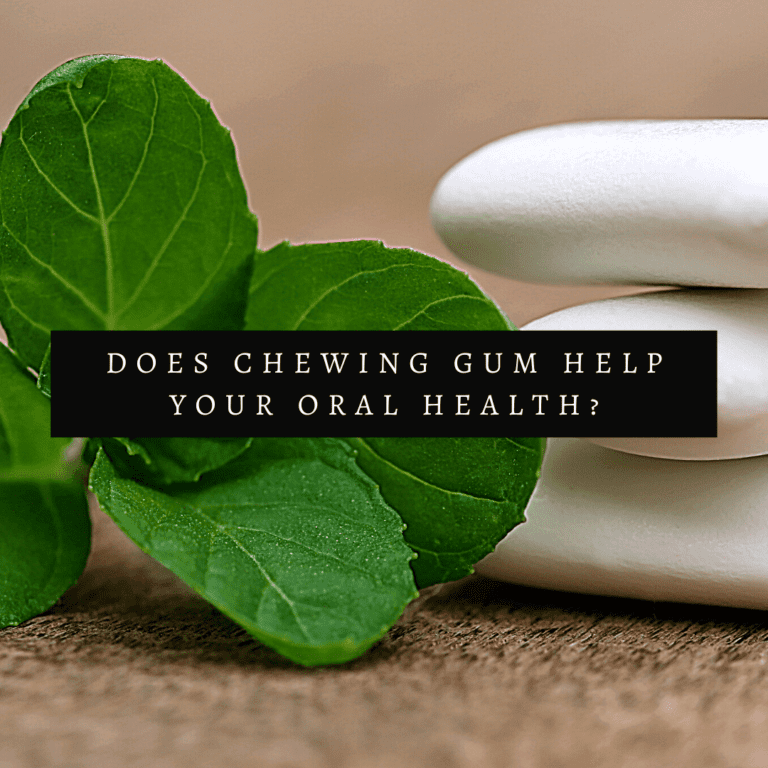Does Chewing Gum Help Your Oral Health?

Did you know that about 560,000 tons of chewing gum are produced each year according to an article published in the National Library of Medicine? That is a lot of chewing gum! The article goes on to say that if each piece of gum is chewed for 30 minutes, this equates to around 187 billion hours of gum chewing. Since chewing gum is intended to stay within the mouth, it is safe to say that it probably has some kind of effect on your oral health. Let’s take a look at how chewing gum can affect your oral health.
Increase or Decrease the Risk of Cavities
Yes, you read that right. Chewing gum can either increase or decrease the risk of developing cavities based up the type of gum you chew. Gum that contains sugar usually uses sucrose, which is a favorite food source of decay-causing bacteria. Therefore, regularly chewing gum with sugar can increase your risk of developing tooth decay.
Conversely, sugar-free gum uses xylitol, which can actually prevent decay-causing bacteria from spreading throughout the mouth. Not only does this decrease the risk of tooth decay, but it also helps to freshen your breath as well.
Decreases pH Levels
Certain types of gum use citric or other acids for flavoring. This causes the overall pH of the mouth to drop, meaning that your saliva becomes more acidic. Higher levels of acidity can result in dental erosion and an increased risk for tooth decay.

Increases Salivary Flow
Chewing sugar-free gum also increases the amount of saliva produced. Chewing sugarless gum after a meal will increase salivary flow, which helps to clean the mouth and decrease acidity. Additionally, saliva contains important minerals such as calcium and phosphate that are used by the body to strengthen tooth enamel and repair areas of dental erosion.
Increased saliva production is beneficial for anyone, however it is highly recommended to chew sugarless gum if you are prone to dry mouth. People with dry mouth cannot produce enough
saliva, so it is important for them to increase their saliva production whenever possible to decrease the risk of dental erosion and decay.
Jaw Problems
While chewing gum for 30 minutes at a time can be beneficial, people who chew gum for hours on end may be at an increased risk for developing jaw problems. Currently, there is no evidence proving a link between excessive gum chewing and temporomandibular disorder (TMD), however researchers believe there may be a relationship between the two.
Decrease Tooth Sensitivity
If your teeth are sensitive to hot, cold, or sweets, then chewing sugarless gum may help to decrease your sensitivity. Chewing sugar-free gum has been shown to decrease tooth sensitivity in dental patients who have recently undergone whitening treatments. It is believed that the excess saliva produced by chewing gum helps to strengthen the enamel.
As you can see, chewing gum does offer a few key benefits to your oral health. However, it is important to realize that these benefits are the result of chewing sugar-free gum. Unfortunately, chewing gum that contains sugar or acids for flavoring can end up being more detrimental to your oral health. Therefore, if you want to chew gum as a way of improving your oral health, go sugarless.






Recent Comments